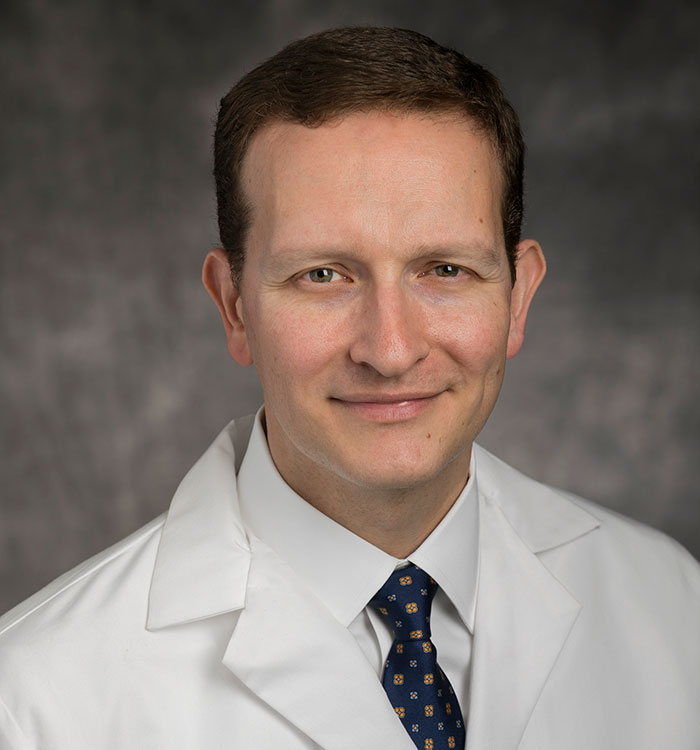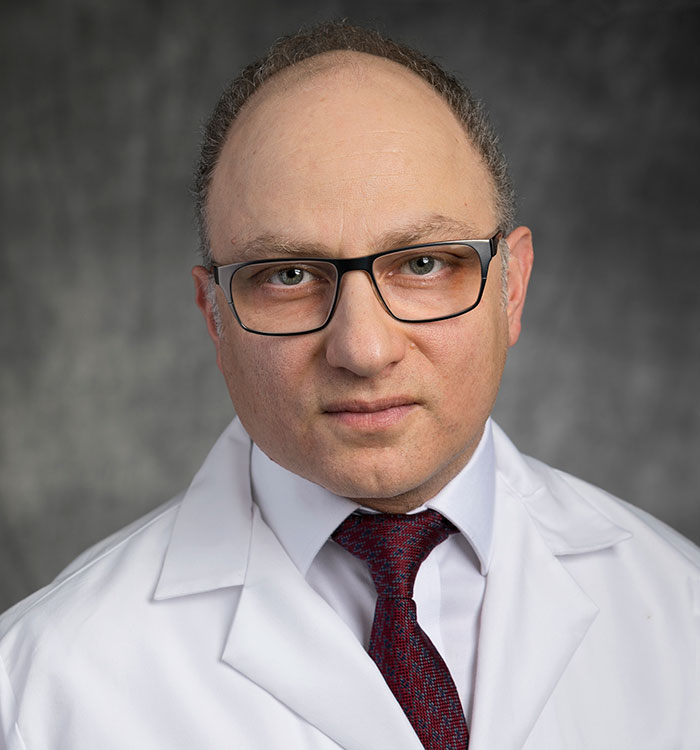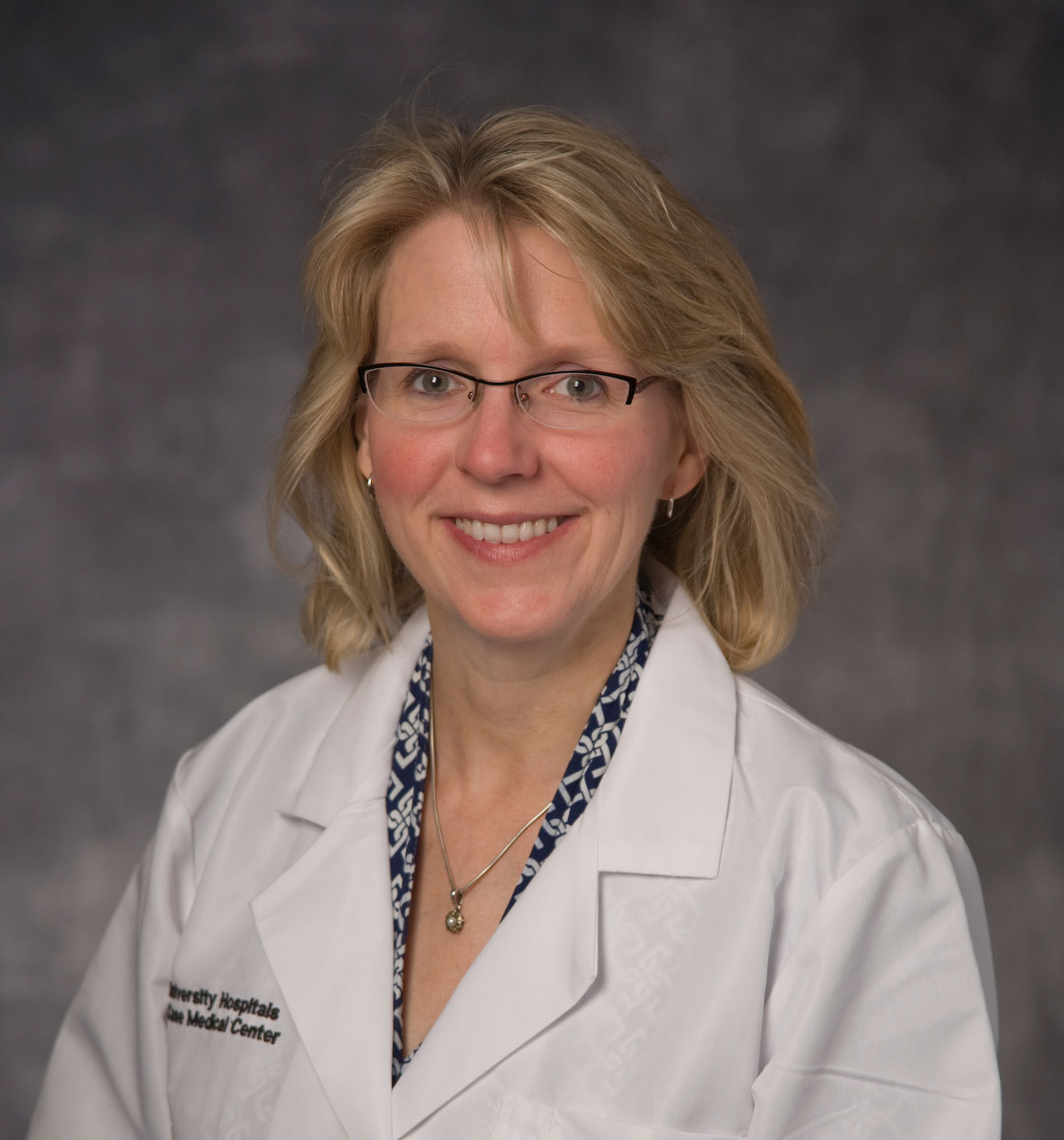Innovative Hypertrophic Cardiomyopathy Board at University Hospitals Harrington Heart & Vascular Institute Features Diverse Set of Experts
July 10, 2022
Complex condition best treated with a truly multidisciplinary approach
Innovations in Cardiovascular Medicine & Surgery | Summer 2022
As the most common form of inherited heart disease, hypertrophic cardiomyopathy is hardly an unusual diagnosis for heart and vascular specialists. Research shows that it affects from one in 250 to one in 500 Americans, affecting hundreds of thousands of people. It’s the single biggest cause behind sudden cardiac death in young people.
Yet caring for these patients effectively is anything but simple. The 2020 guidelines for the condition issued by the American Heart Association and American College of Cardiology, for example, are multifaceted and quite complex, say experts who treat the condition. Another indicator of complexity? The U.S. Food and Drug Administration requires that physicians pass a specialized test before they can prescribe the newly approved drug for obstructive hypertrophic cardiomyopathy, mavacamten (Camzyos).
Recognizing the challenge and complexity inherent in hypertrophic cardiomyopathy, the heart and vascular specialists at University Hospitals Harrington Heart & Vascular Institute have developed an approach to care that maximizes the input of the different cardiovascular disciplines within the Institute. Modeling themselves after an oncology tumor board, they’ve formed a hypertrophic cardiomyopathy board to manage these challenging patients. The multidisciplinary board includes specialists in heart failure, electrophysiology, cardiothoracic surgery, cardiovascular imaging, genetics, cardiovascular medicine, interventional cardiology and pediatric cardiology. Questions discussed include a patient’s participation in athletics, the risk of sudden cardiac death and the need for an ICD, and which septal reduction technique is most warranted – surgical myectomy or alcohol ablation.
 Eiran Gorodeski, MD, MPH
Eiran Gorodeski, MD, MPH“The guidelines are very complex,” says Eiran Gorodeski, MD, MPH, Medical Director, Advanced Heart Failure & Transplant Center at UH Harrington Heart & Vascular Institute. “What we've really realized here at University Hospitals is that it’s very difficult for any one physician to manage all aspects of care. With our new board, every two weeks we review the most complex cases of patients with hypertrophic cardiomyopathy in our system and we come up with different approaches to treat them in a consensus manner. The things that patients desire the most are access and expertise for their conditions from multiple specialists, and so we have the whole package here.”
This multidisciplinary approach to care is somewhat unusual in the field, Dr. Gorodeski says.
“Certainly there are centers around the world that do this, but I think it's very few and far between,” he says.
Yasir Abu-Omar, MD, DPhil, Surgical Director, Heart Transplantation and Mechanical Circulatory Support and the Russ & Connie Lincoln Chair in Cardiovascular Innovation at UH Harrington Heart & Vascular Institute, provides expertise in cardiothoracic surgery to the new board, providing select hypertrophic cardiomyopathy patients with the option of surgical septal reduction as treatment for the obstructive form of the disease.
 Yasir Abu-Omar, MD, DPhil
Yasir Abu-Omar, MD, DPhil Judith Mackall, MD
Judith Mackall, MD“A team that is experienced in the management of these patients is critical,” he says. “It has been repeatedly demonstrated that the outcomes are very much related to the expertise of the team managing these patients.”
Treating heart rhythm issues is another critical aspect of managing patients with hypertrophic cardiomyopathy, addressed by the new multidisciplinary board, says Judith Mackall, MD, Director, Center for Cardiovascular Genetics and the Irving B. and Virginia Spitz Master Clinician in Cardiology at UH Harrington Heart & Vascular Institute.
“There is the risk of sudden death related to a malignant ventricular rhythm,” she says. “Identifying patients who are at risk for sudden death takes a careful assessment of both underlying heart rhythm and imaging characteristics. If they're stratified into a high-risk group, then an implantable cardiac defibrillator would be recommended.”
“We also see patients who, because the condition affects all chambers of the heart, there is an increased risk of developing atrial fibrillation,” she adds. “As these patients age, this becomes important because their stroke risk from having a cardioembolic event is so high – probably 17 to 20 percent annual risk, and treatment can effectively reduce their risk.”
Although the hypertrophic cardiomyopathy board is just a year or two old, Drs. Gorodeski, Abu-Omar and Mackall say they’ve already seen the difference it can make for patients. Going forward, hypertrophic cardiomyopathy patients at UH Harrington Heart & Vascular Institute will have the opportunity to participate in a registry study of the new drug mavacamten, approved to treat obstructive hypertrophic cardiomyopathy. A clinical trial for patients with the non-obstructive form of the disease is also in the works. This will be important as diagnosis of the condition continues to increase.
“With the use of imaging, we have a much better understanding of this condition certainly over the last decade,” Dr. Gorodeski says. “It's being diagnosed more frequently and is really becoming an important topic.”
For more information on the hypertrophic cardiomyopathy board at UH Harrington Heart & Vascular Institute, please contact Dr. Gorodeski at 216-286-1027. To refer a patient, please call 216-844-3800.
Contributing Experts:
Eiran Gorodeski, MD, MPH
Medical Director, Advanced Heart Failure & Transplant Center
University Hospitals Harrington Heart & Vascular Institute
Professor of Medicine
Case Western Reserve University School of Medicine
Yasir Abu-Omar, MD, DPhil
Surgical Director, Heart Transplantation and Mechanical Circulatory Support
University Hospitals Harrington Heart & Vascular Institute
Russ & Connie Lincoln Chair in Cardiovascular Innovation
Clinical Professor of Surgery
Case Western Reserve University School of Medicine
Judith Mackall, MD
Director, Center for Cardiovascular Genetics, and Director, Device Clinics,
University Hospitals Harrington Heart & Vascular Institute
Irving B. and Virginia Spitz Master Clinician in Cardiology
Professor of Medicine
Case Western Reserve University School of Medicine


